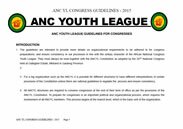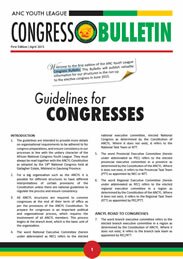Budgeting for New Parents: Childcare, HSAs, and Education Savings
As a new parent, you’re likely facing a range of unexpected financial decisions, from navigating childcare costs to figuring out how to set aside money for future health and education needs. It’s easy to feel overwhelmed by the numbers, but starting with a practical plan can make a difference. Before you decide how to allocate your resources, consider what you’ll need to address first—your approach could shape your family’s finances for years to come.
Assessing Your Current Financial Landscape
A comprehensive assessment of your current financial situation is crucial prior to the arrival of a new child. It is advisable to review your Banking, Checking Accounts, Savings Accounts, and Money Market Accounts to gain insights into your household budget for necessary baby items.
Identifying potential areas to reduce Expenses can contribute to improved financial stability. Establishing an Emergency Fund that covers three to six months of living expenses is generally recommended to mitigate unforeseen circumstances.
Additionally, it is important to allocate funds for prenatal and postnatal care, as well as essential items for child safety, such as a car seat or baby monitor.
Insurance coverage, mortgage obligations, and Estate Planning documents should be updated to reflect your changing family dynamics. Consulting with experienced financial advisors can provide valuable guidance in achieving your financial objectives.
Furthermore, various Tools, Resources, Calculators, and Online Services are available to assist you in effectively managing your financial path.
Estimating Medical Expenses and Managing Health Savings Accounts
Pregnancy and the subsequent care of a newborn can incur substantial medical expenses, warranting careful financial planning for expectant parents. It is important to thoroughly assess your health insurance coverage, as this will greatly influence your out-of-pocket costs. Utilizing Health Savings Accounts (HSAs) or Flexible Spending Accounts (FSAs) can be effective strategies for allocating pre-tax dollars toward costs related to prenatal care, delivery, pediatric services, and postnatal appointments.
Estimates for medical expenses during pregnancy and the first year of a child’s life typically range from $3,000 to $10,000. Given this range, it is advisable to establish a separate savings fund of approximately $1,000 to $2,000 to accommodate potential unexpected expenses that may arise during this period.
Engaging with financial advisors can provide valuable insights in creating a budget tailored for managing these costs, thus preparing your household for possible medical emergencies linked to the arrival of a new family member.
In addition to specific medical expenses, it is prudent to consider setting aside three to six months' worth of living expenses. This practice serves as a financial buffer, ensuring stability in the event of unforeseen circumstances that could affect your household income or expenses.
Overall, advance preparation and prudent financial management are key to navigating the financial implications of expanding your family.
Planning for Baby Essentials and Everyday Costs
New parents often encounter significant daily expenses related to their newborn, making careful budgeting a critical aspect during the first year. Essential costs include items such as diapers, formula, and key baby equipment like car seats and cribs. To effectively manage these expenses, it is advisable to allocate specific funds for these necessities.
Establishing separate savings accounts can aid in tracking these expenses, while utilizing online budgeting tools and calculators can provide insight into expected costs. Regularly reviewing the household budget on a monthly basis is also beneficial for adjusting to any fluctuations in expenses.
In addition to setting aside funds for direct baby expenses, implementing strategies such as meal planning, purchasing in bulk, and utilizing coupons can contribute to overall savings.
Furthermore, it is prudent to maintain an emergency fund that covers three to six months’ worth of living expenses. This fund can provide a financial cushion for unexpected situations, which may include postnatal care or medical emergencies.
Overall, a structured approach to budgeting and savings can significantly ease the financial impact of welcoming a new baby into the family.
Childcare Options and Budget Considerations
Adjusting to life with a new child involves careful consideration of various factors, with childcare representing a significant recurring expense. The costs associated with childcare can differ widely based on geographic location and the type of care selected, necessitating a thorough comparison of available services.
Factors to assess include safety standards, facilities, and the level of coverage provided by each option.
Utilizing a Flexible Spending Account (FSA) can be an effective strategy for managing childcare costs, as it allows parents to use pre-tax funds for qualifying expenses. In addition to this, establishing separate savings accounts or considering market accounts may provide further financial flexibility to cover these expenses.
It is also important to review your overall budget concerning essential items for the baby, postnatal care, and potential income reductions if one parent chooses to stay at home.
Engaging with financial advisors can offer valuable insights and assistance in achieving fiscal stability as your family grows.
Lastly, employing online tools and calculators can facilitate cost management and provide clearer visibility into financial planning related to childcare and associated expenses.
Adjusting Household Budgets for a Growing Family
The arrival of a new child necessitates a careful review and adjustment of household budgets to accommodate the increase in expenses. Begin by evaluating your current income, household expenditures, and savings capabilities.
Identify potential areas where expenditures can be reduced or funds can be reallocated to prioritize essential items such as diapers, prenatal and postnatal care, and childcare services.
Costs associated with raising a child can vary significantly, thus it is advisable to establish a dedicated baby budget. Utilizing financial tools such as a Flexible Spending Account (FSA) can be beneficial in managing out-of-pocket medical expenses.
Consulting with financial advisors can provide insights into effectively coordinating aspects such as coverage options, insurance needs, and planning for potential loss of income due to caregiving responsibilities.
Additionally, maintaining separate savings accounts or Money Market Accounts specifically for the expenses related to your growing family can facilitate better financial management and ensure preparedness for upcoming costs.
Building and Maintaining an Emergency Fund
Unexpected expenses can arise when caring for a young child, which makes having a well-funded emergency fund an important element of your family's financial strategy. The costs associated with postnatal care, essential items such as car seats or baby monitors, and regular pediatric visits can quickly accumulate.
Financial experts typically recommend saving three to six months' worth of essential expenses in either FDIC-insured savings accounts or money market accounts to ensure adequate liquidity and security.
To facilitate this savings goal, consider automating contributions from your checking account. Additionally, review your household budget to identify areas where spending can be reduced in order to allocate more funds towards your emergency savings.
Financial advisors can provide valuable guidance on strategies for maintaining financial stability and planning for potential income replacement as your family grows.
Reviewing Insurance and Estate Planning
Welcoming a new child necessitates a thorough review of your insurance policies and estate planning to ensure they adequately support your family's evolving needs.
It is essential to evaluate your health insurance plan to verify that it covers prenatal, postnatal, and pediatric care. The financial implications of medical emergencies can be significant, making this assessment particularly important.
In addition to health insurance, consider your life insurance coverage. It is crucial that this coverage provides sufficient income replacement for your household in the event of a loss.
Updating your will to reflect new family circumstances is also important, particularly in designating a guardian for your child. Furthermore, establishing a trust can be a beneficial step for managing and protecting your child's inheritance.
Financial advisors can offer guidance on effective strategies for achieving financial security.
Tools such as Savings Accounts, Money Market Accounts, and Emergency Funds can serve to provide a safety net for your family's future needs.
Additionally, it is important to regularly update beneficiary designations to ensure that investment transfers align with your current wishes and family situation.
Conducting these reviews and updates in a timely manner will contribute to a more secure financial future for your growing family.
Saving for Education and Long-Term Goals
As the costs associated with higher education continue to rise, it is advisable to begin planning for your child's future educational expenses at an early stage. One effective savings vehicle is a 529 Plan, which allows for tax-free growth on withdrawals when used for qualified education expenses. This can significantly alleviate the financial burden of college costs.
Financial advisors can assist in navigating the options available, including market accounts, savings accounts, and various investment alternatives, while also taking into account your household budget. Establishing automatic contributions, even in modest amounts, can enhance savings consistency over time.
Additionally, it is worth exploring state-specific 529 Plans, as some may offer financial incentives for contributors.
To maximize your education savings potential, consider reviewing your current expenditures and identifying areas where reductions can be made. This systematic approach can facilitate the accumulation of savings necessary for your child's educational pursuits.
Strategies for Ongoing Financial Management
Financial management can be particularly challenging for individuals navigating the ongoing responsibilities of parenthood. Proactive budgeting is therefore essential to mitigate these challenges. When preparing for the financial implications of a new child, it is advisable to utilize various financial tools, including online banking platforms, checking, and savings accounts—with a preference for FDIC-insured accounts due to their added security.
Establishing an emergency fund is a crucial aspect of financial planning, generally recommended to cover three to six months’ worth of living expenses. This fund serves as a financial cushion in the event of unexpected income loss.
Additionally, Health Savings Accounts (HSAs) or Flexible Spending Accounts (FSAs) can be beneficial for managing health-related expenses such as prenatal and postnatal care, as well as medical emergencies.
Regular monitoring of household expenses is vital. Individuals should conduct periodic reviews to identify areas where expenditures can be minimized.
Furthermore, consulting with financial advisors can provide valuable guidance on investment strategies, mortgage options, insurance policies, loan management, and estate planning. These professional insights can enhance financial stability during the significant life changes associated with parenthood.
Conclusion
As you prepare for parenthood, staying organized and informed about your finances is essential. Be proactive—review your budget, explore benefits like HSAs, and plan ahead for childcare and education costs. Don’t overlook insurance and emergency planning to protect your family. With regular check-ins and thoughtful adjustments, you’ll be better equipped to handle the financial demands of raising a child, ensuring a more secure and stable future for your growing family.

 Documents
Documents











